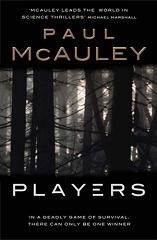Martin being Martin Amis, the quote being from his writer pal Ian McEwan, refering to Mart’s growing reputation as a racist and/or Islamophobe, because of remarks like these:

“What can we do to raise the price of them doing this? There’s a definite urge – don’t you have it? – to say, ‘The Muslim community will have to suffer until it gets its house in order.’ What sort of suffering? Not letting them travel. Deportation – further down the road. Curtailing of freedoms. Strip-searching people who look like they’re from the Middle East or from Pakistan… Discriminatory stuff, until it hurts the whole community and they start getting tough with their children. They hate us for letting our children have sex and take drugs – well, they’ve got to stop their children killing people. It’s a huge dereliction on their part. I suppose they justify it on the grounds that they have suffered from state terrorism in the past, but I don’t think that’s wholly irrational. It’s their own past they’re pissed off about; their great decline. It’s also masculinity, isn’t it?”
McEwan, who is slightly but not much less nuts than Amis on this subject seems to blame the Guardian for publishing articles like the age of horrorism rather than Amis for opening his gob in the first place, which seems a bit unfair. The man himself meanwhile has hit back at his critics with a spectacularly incoherent piece in, you guessed it, the despised Guardian itself:
I want to talk about the discourse, and about the kind of public conversation we should be hoping to have. But before I do that, I will pay my Islamic readers – and I know I have a few – the elementary courtesy of saying that I DO NOT “ADVOCATE” ANY DISCRIMINATORY TREATMENT OF MUSLIMS. AND I NEVER HAVE. And no one with the slightest respect for truth can claim otherwise.
Has he read his earlier remarks quoted above, or does he think that if he denies them hard enough they will go away? Because, you know, that blaming of an entire population for the acts of a few seems awfully close to racism to me, especially considering the context. Ever since the September 11 attacks Amis has left no opportunity unused to discuss his disgust at the ideology behind it and over time he has done so in increasingly general terms, culminating in that awful “Age of horrorism” article which came very close indeed in blaming all of Islam for the misdeeds of September 11.
So is Amis a racist? Not in the sense that he’ll be sticking burning crescents on the council estates of Birmingham perhaps, but at the very least he’s an arrogant, self-absorbed ignorant blowhard who mistakes his regurgitation of whichever book he last read for insight. Very telling indeed in this context is the second paragraph of his “I’m no racist, honest” piece, which begins with “When I was five or six years old, my father took me to meet a black man.” That’s the level of self-absorption we’re dealing with here.

